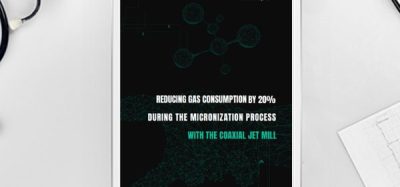Entrenched misconceptions about antibiotics revealed in new survey
Posted: 18 November 2014 | | No comments yet
Four in ten people take antibiotics for a cough or runny nose despite both conditions normally clearing up without treatment, according to new research out by Public Health England (PHE) for European Antibiotic Awareness Day (EAAD)…


Four in ten people take antibiotics for a cough or runny nose despite both conditions normally clearing up without treatment, according to new research out today by Public Health England (PHE) for European Antibiotic Awareness Day (EAAD).
The research also found 90% of people are not aware bacteria that are resistant to antibiotics spreads easily from person to person, and more than one in seven don’t realise that healthy people can harbour these bacteria.
People surveyed also mistakenly believed antibiotics can be used for fungal infections and allergic reactions, work as anti-inflammatory medication and can weaken the immune system. This confusion is contributing to inappropriate use of antibiotics, a factor in the growing threat of treatment-resistant bacteria.
The survey of 1,625 adults in England assessed knowledge on, and attitudes towards, the uses of antibiotics. It found widespread misconceptions including:
- Half of those questioned believe antibiotics weaken your immune system
- Four in ten believe antibiotics could be used to treat viral infections
- In the last year, four in ten people with a cough or symptoms of a cold, and six in ten people with a throat infection had taken antibiotics. These conditions usually clear up by themselves and do not require antibiotics
- 17% believed that antibiotics could be used as an anti-inflammatory agent; 4% believed they can treat asthma, 4% that they can treat hay fever and 4% that they can treat headaches. More than one in ten believed they can be used to treat allergic reactions and 26% that they can treat fungal infections
- Also, almost four in ten 15-24 year olds reported taking antibiotics that were not prescribed for them compared to under one in ten people over 25 years old. This was either taking left-overs of their own or those belonging to other family members or friends, abroad, via the internet or those that were prescribed for a different or previous infection.
Dr Cliodna McNulty, head of PHE’s primary care unit, said: “The misconception that antibiotics are a cure-all for all ills is proving to be a very difficult myth to shift. There is relatively good awareness that antibiotics are for the treatment of bacterial infections but there is still a strong belief that they can also help with viral infections and other symptoms which they cannot.
“Our survey results highlight the need for much greater awareness-raising as to what antibiotics are, and what conditions they can be used for. People also do not realise that we can all carry antibiotic resistant organisms and spread them to others very easily, just through our everyday activities and contacts.
“Because antibiotics are precious medicines we want everyone to pledge to save them and have launched a new campaign this year called Antibiotic Guardian. We are asking everyone – members of the public and health professionals to make a pledge to help preserve our precious antibiotics. This could be something like seeking advice from the chemist on self-care of symptoms or for a GP to use a back-up prescription for patients with a high expectation of receiving antibiotics.
“Previous surveys have shown that GPs are a trusted source of advice and we saw that in this survey as well. Given this level of confidence and trust we need to capitalise on it and support GPs to use back up prescriptions if there is any doubt as to whether someone has a bacterial or a viral infection. This will help to reduce the amount of antibiotics being prescribed and help to stop antibiotic resistance developing.”
Chief Medical Officer, Dame Sally C. Davies said: “European Antibiotics Awareness Day is an excellent opportunity to raise awareness around the growing issue of antibiotic resistance. We need to preserve the antibiotics we have, otherwise we could see the end of modern medicine as we know it. This is about appropriate prescribing by GPs and patients being aware when antibiotics are really needed.”







